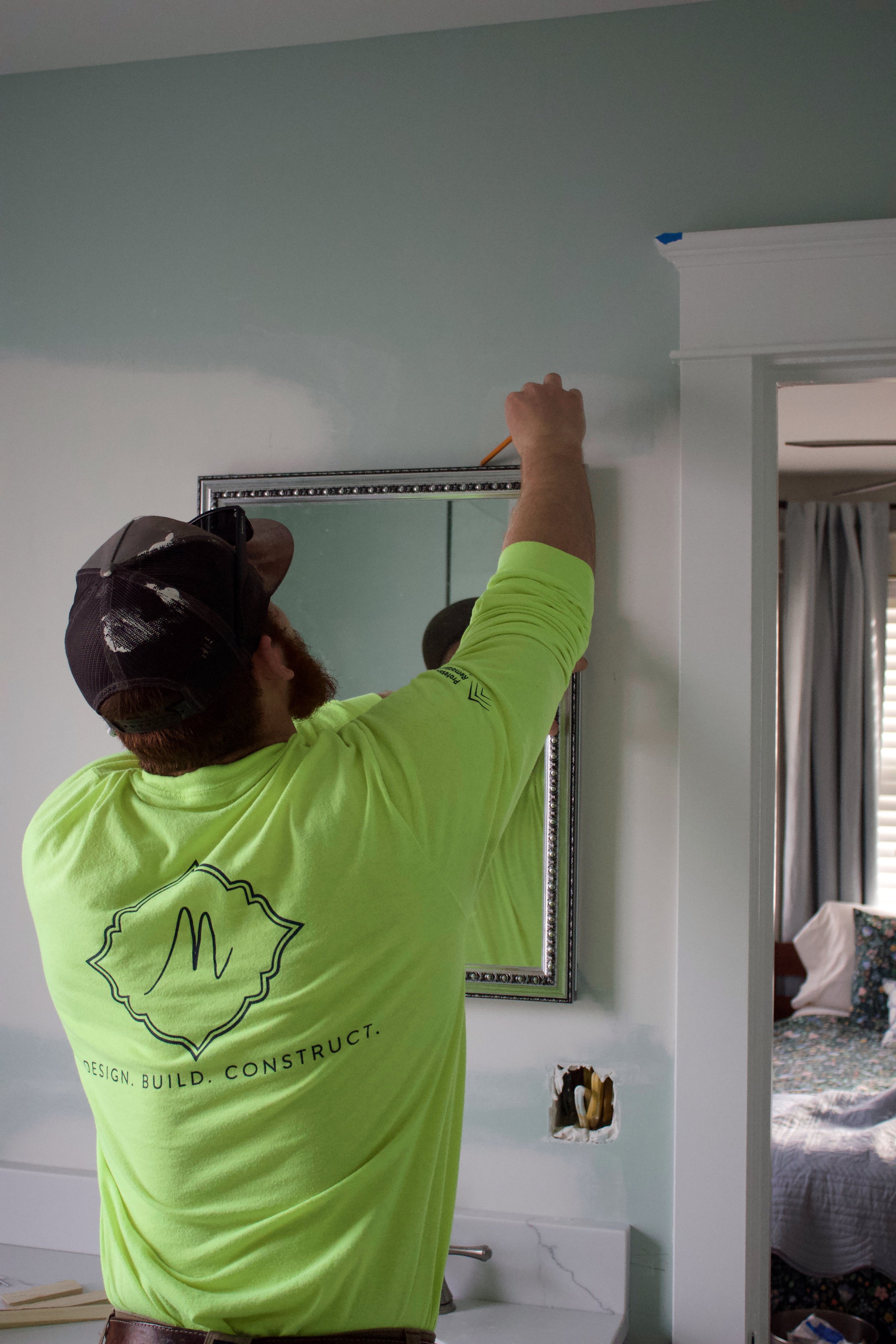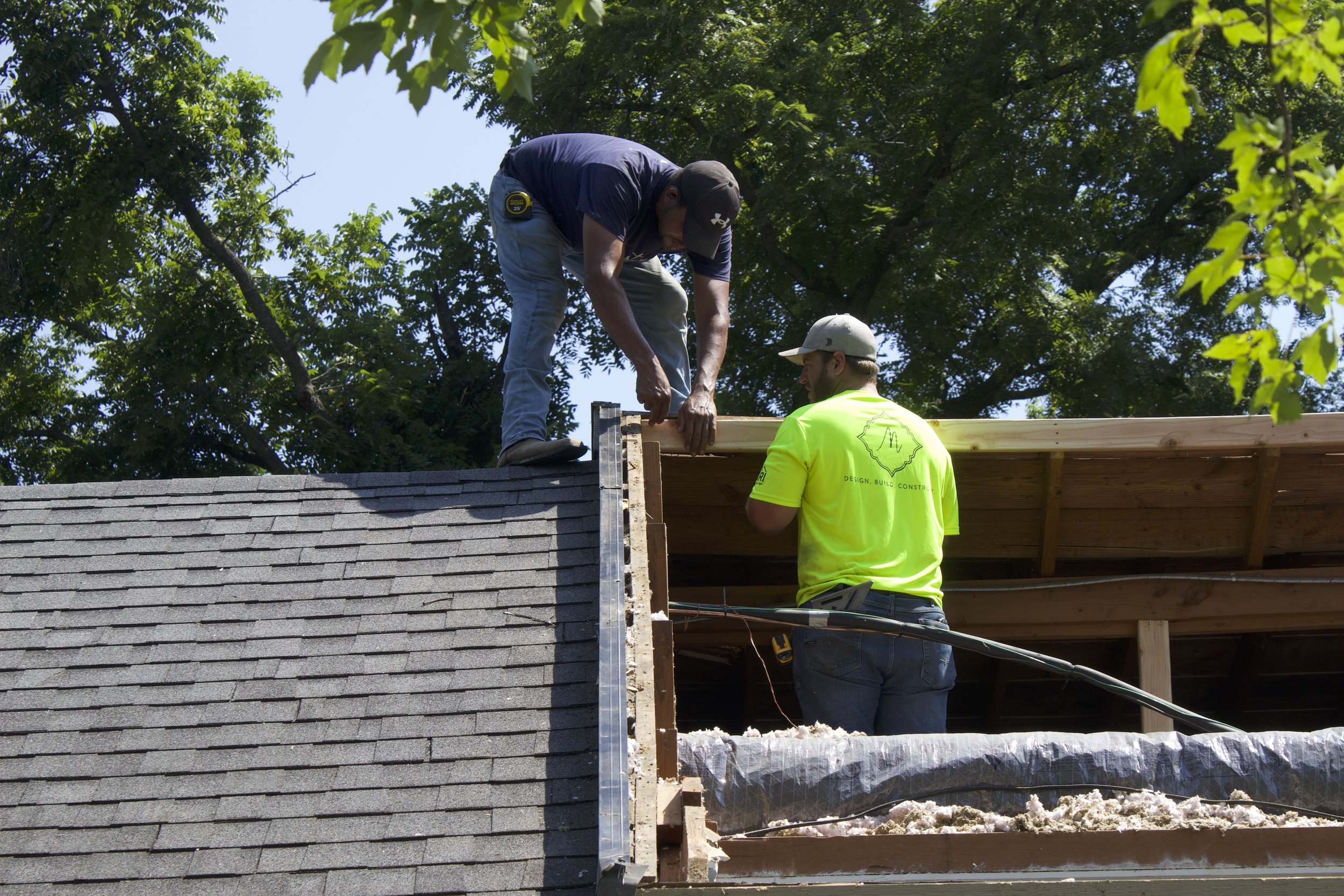When Not to DIY?
Projects for home improvement are a terrific way to personalize your environment and increase the value of your house. Many houseowners like doing these chores on their own. Not every project, meanwhile, is fit for do-it-yourself. Certain jobs include hidden hazards, the possibility for expensive blunders, or demand for knowledge beyond the typical homeowner's ability level. Achieving the greatest results without compromising the integrity of your house depends on knowing when to do projects and when to consult a professional. This article will discuss the projects you can safely tackle yourself and when it's best to leave things to the professionals.
Hidden Structural Challenges in Home Renovations
One of the most crucial factors in house remodeling—especially when you are demolishing walls—is whether the wall loads anything. Many homeowners would not know that demolishing a wall could endanger the structural integrity of their house. Eliminating a wall bearing weight—that of those supporting a floor above or the ceiling—may cause major problems including collapse.
The Importance of Load-Bearing Walls
The structural stability of your house depends critically on load-bearing walls. These walls help the floor above or the roof to support weight. Eliminating or changing them without enough support might have disastrous effects, including sagging ceilings or perhaps collapse. Knowing whether the wall you wish to demolish is load-bearing or part of a critical support system is absolutely essential.
The Hidden Danger of Purlins and Roof Support
One other factor to take into account is the existence of beams called kicker purlins, which serve to disperse the weight of the roof. You should find out whether a wall you are opening from your house is connected to a purlin supporting the weight of the roof. Ignorance of the whole extent of these structural components could unintentionally compromise the foundation of your house.
The Potential Cost of DIY Mistakes
Many times concealed from view are structural problems; neglecting to find them could result in large-scale repairs. Should you remove a load-bearing wall without appropriate reinforcement, you may find yourself involved in a significant rebuilding effort. Correcting these errors might easily cost more than employing a professional initially, hence this is not a quick remedy.
The Role of Professionals in Structural Work
Contractors or structural engineers has the knowledge to determine whether a wall supports loads or is a component of a more intricate structural system. They can guide your safe planning of your projects. Hiring a professional guarantees that the job is done right and helps you to prevent expensive mistakes and preserve the stability of your house, so offering piece of mind.
Using the Right Equipment for Structural Changes
Removing the wall still calls for correct tools and knowledge even if you know it is not load-bearing. You can damage other areas of your house or perhaps hurt yourself without the correct tools. Professionals have the skills and knowledge required to properly and safely manage these tasks.
Bathroom Remodels: Waterproofing and Ventilation are Key
Another area where do-it-yourself projects could fail if the correct safety measures are neglected is bathroom renovations. The results may be catastrophic when water starts to leak into your house. Mold and rot might ruin your flooring and walls without appropriate waterproofing. The heavy wetness from basins and showers makes bathrooms especially susceptible.
The Importance of Waterproofing in Bathroom Remodels
The first barrier against water damage in your bathroom is waterproofing. Inappropriate installation can let water leak into foundations, flooring, and walls, fostering mildew and mold growth. A do-it-yourselfer can lack the tools or supplies needed to guarantee a correct seal. Professionals know how to sealants and waterproofing membranes applied to guard your house from possible water damage.
Choosing the Right Materials for a Bathroom Remodel
Bathrooms call for particular moisture-resistant materials include ceramic tiles, water-resistant drywall, and mold-resistant paints. These products are meant to resist excessive humidity and stop water damage. Selecting the correct materials and installing them properly is crucial during a bathroom makeover. Professionals may advise solutions depending on your particular requirements and have access to the finest materials.
Ventilation to Prevent Moisture Buildup
A bathroom is a high-moisture area, hence good ventilation is essential in avoiding mildew and mold. Steam from your shower or bath can build on walls and ceilings without an efficient ventilation system, providing a mold growing environment. Inadequate or improperly installed fans could aggravate this problem. Expert builders can evaluate the demands of your bathroom and design a suitable ventilation system to control moisture levels.
Code Compliance in Bathroom Remodeling
Particularly with regard to plumbing and ventilation, every local government has construction rules outlining the required procedures for bathroom renovations. A do-it-yourself project can overlook some crucial guidelines, causing violations that might call for fines or forced alterations. Knowing these rules, contractors make sure your refurbishment complies completely with local legislation.
Preventing Future Damage in Bathroom Remodels
It's easy to forget long-term issues include mold development or water damage when renovating a bathroom. A skilled remodeling guarantees not only modernizing but also future protection of your bathroom. Investing time to do things correctly will help you prevent later expensive repairs.
Basement Projects: Protecting Against Moisture
Basement renovations are among the toughest do-it-yourself undertakings, given the moisture that could seep in from the ground. Many times, basements are built right on concrete foundations, which, although strong, are not waterproof. Easy access to water from the ground in your basement will cause mold to flourish, dampness to develop, and perhaps structural damage.
The Science Behind Basement Moisture Protection
Ground moisture finds its way into basements; if the concrete foundation is not well sealed, this moisture will leak through it. Good moisture protection calls for knowledge of water movement through concrete and appropriate material use to inhibit it. Expert builders can apply the required sealants, vapor barriers, and drainage systems to keep your basement dry knowing the science underlying basement moisture control.
Insulation and Its Role in Basement Protection
Another absolutely vital component in basement renovations is insulation. Your basement may become a refuge for mildew, mold, and other environmental problems without appropriate insulation. Apart from preventing moisture accumulation, insulation enhances energy economy and helps control temperature. Even with waterproofing, a poorly insulated basement runs increased risk of having moisture-related issues.
The Risks of DIY Basement Waterproofing
Many do-it-yourselfers believe that simply coating their basement with paint or sealer will help to prevent moisture damage. Regretfully, these band-aid solutions usually overlook the fundamental problem. Professionals know how to correctly evaluate the requirements of a basement and implement long-lasting waterproofing systems meant to avoid future issues.
The Need for Proper Drainage Systems
Apart from waterproofing, in basement renovations good drainage is crucial. In absence of appropriate drainage systems, water can gather around the foundation and make its path towards the basement. Experts know how to set up sump pumps, French drains, and other systems to guarantee that water runs away from the foundation of your house.
Mold Prevention and Remediation in Basements
In basements, mold is a major issue that may grow rapidly given enough moisture allowed to build up. Professionals can locate possible mold hotspots and act to eliminate them so that they won't resurface. Do-it-yourself mold removal projects might not completely solve the problem thus, your basement is open to future development.
Plumbing, Electrical, and HVAC: Safety Comes First
DIY should not be tried in plumbing, electrical work, or HVAC systems, particularly if you are not familiar with how these systems operate. Incorrect repairs or installation in these places could cause major problems. For instance, incorrectly placed plumbing can cause major water damage by allowing leaks to be undetectable for weeks.
Why Plumbing Requires Professional Expertise?
Every house needs a plumbing system, hence incorrect installation could cause expensive leaks, water damage, or perhaps health risks. If not taken care of properly, even little problems like leaky faucets or blocked pipes can rapidly get out of hand. Expert plumbers are aware of the intricacies of pipes, water pressure, and leak prevention strategies meant to avoid long-term damage.
The Dangers of DIY Electrical Work
If abused, electrical systems are complicated and dangerous. Property damage, electrocution, or electrical fires can all result from faulty wiring. Local building codes and laws control electrical work to guarantee safety. Professionals are taught to negotiate these codes and guarantee safe and correct installation of electrical systems.
HVAC System Installation and Maintenance
Heat, cool, and ventilation in your house depend on HVAC systems. Do-it-yourself efforts at HVAC system installation or repair run the risk of producing ineffective systems, bad air quality, or safety issues. Expert HVAC professionals ensure these systems function safely and effectively for years to come by knowing how to correctly install, repair, and maintain them.
Code Compliance and Inspections
Safety and utility depend on plumbing, electrical, and HVAC systems following local construction codes. Ignoring these guidelines could result in forced rework or hefty fines. A qualified contractor will make sure the systems in your house follow codes, therefore safeguarding your investment and your house.
Peace of Mind with Professional Help
Hiring a professional to manage HVAC, electrical, or plumbing projects gives peace of mind. These professionals save you time, money, and possible headaches by having the equipment, skills, and experience to complete tasks correctly. Having a qualified expert guarantee that your systems are installed and maintained safely is always well worth the price.
DIY Projects You Can Tackle
Although certain house repairs call for expert assistance, many doable projects you might boldly handle yourself. For homeowners trying to update their areas without consulting a professional, simple chores including painting, adding trim work to walls, or putting a backsplash are perfect jobs.
Conclusion
In summary, even if do-it-yourself projects can be a great and satisfying method to upgrade your house, there are some areas where it would be advisable to let the professionals handle them. Beyond the knowledge of the typical homeowner, structural improvements, bathroom renovations, basement projects, and work requiring plumbing, electrical, or HVAC systems call for specific knowledge and abilities.
Making mistakes in these spheres could be expensive and may be dangerous. DIY is a terrific way to add value to your house and experience the gratification of doing lesser chores like painting, trimming, or backsplashes. Before selecting whether to call a professional or do it yourself, always evaluate your abilities and the degree of project difficulty. Once you are ready to begin your next house renovation job, be sure you know when to bring in experts. Stay safe and make wise choices to guard your investment as well as your house.





